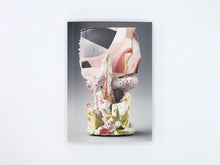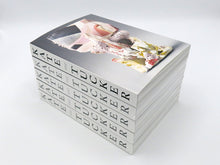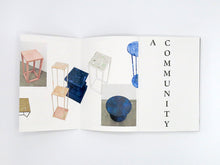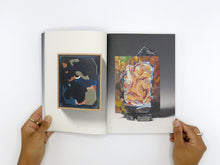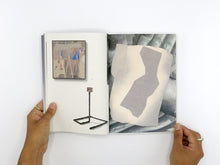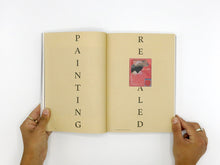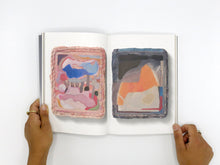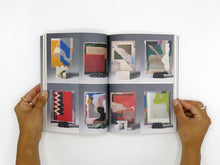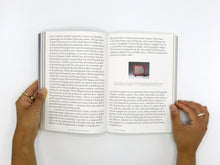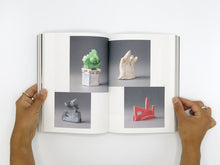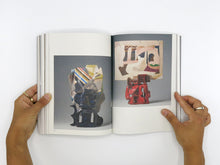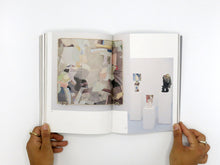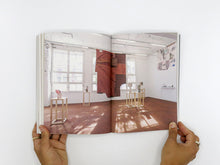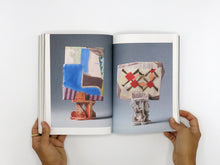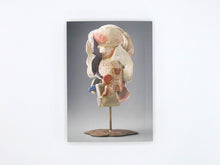
Describing Kate Tucker’s works as ‘paintings’ seems almost shortsighted. The medium’s implicit relationship with a bordered, finite, two-dimensionality feels at odds with the Melbourne-based artist’s densely layered, fractured, and rearranged works.
Emphatically three-dimensional, humbly monolithic, and highly democratic in their form and materials, Tucker’s paintings – rendered via acrylic mediums, fragments of pre-printed fabrics, canvas, linen, Chux and cardboard, along with earthenware and slickly glazed ceramic support systems – are at once plinths, prints, collages, sculptures, installations, and frames. They are infinitely layered constellations, colliding and harmonising at impossibly close quarters.
Here, the act of painting is integrated into a work’s slab-like substrate, rather than onto its surface. As art historian and writer Helen Hughes frames it, the ‘main event’ of Tucker’s artwork stages a ‘tussle’ with its supposedly supporting cast; her works ‘deconstruct the hierarchical division between … painting and frame, or sculpture and plinth’. Everything is everywhere in these paintings, which Tucker composes, deconstructs, and reimagines with a kind of deft graphic literacy that points towards her former life as a designer, all the while echoing with the raw imperfections of a hands-on studio practice. While modest and domestic in scale, these works are vast in their labour and their making.
A community of parts is Tucker’s first book and points to the evolution of her practice over the last decade. Featuring texts from curators Amelia Wallin and Charlotte Cornish, alongside an expansive conversation between the artist and Helen Hughes, the book comes to life with Matthew Stanton’s striking photographic documentation and Narelle Brewer’s intuitive design language. Assuming the guise of the workbook as much as the monograph, A community of parts doesn’t so much reproduce Tucker’s works, as it nestles in amongst them, elbow to elbow, testing new combinations, arrangements, and sight lines. Everything is dialogic, generative, and unmistakably physical in this purposeful throng of works. Together, they lead us to new vantages on a painting and sculptural practice that becomes more limitless with each passing year.
256 pages, 17 x 24cm, OTA-bind softcover, Perimeter Editions (Melbourne).














